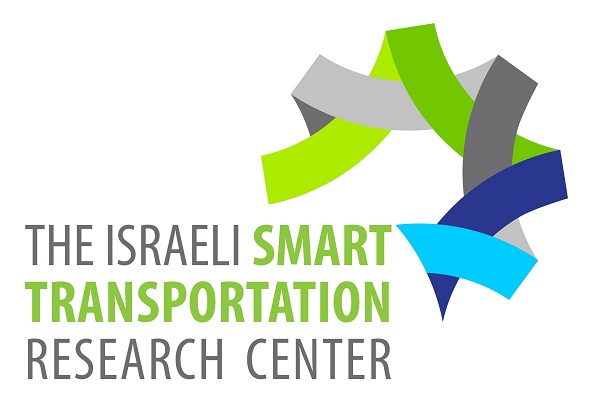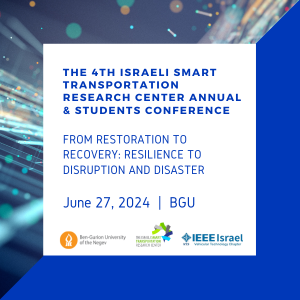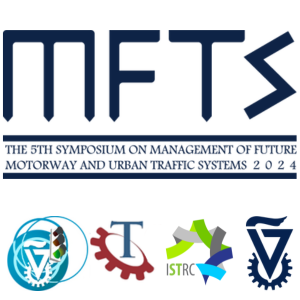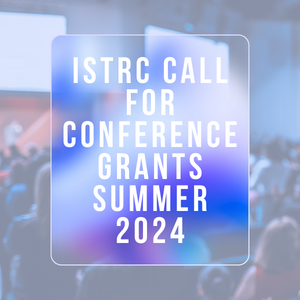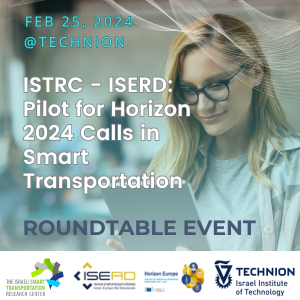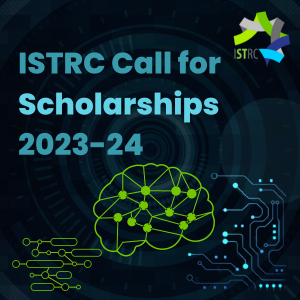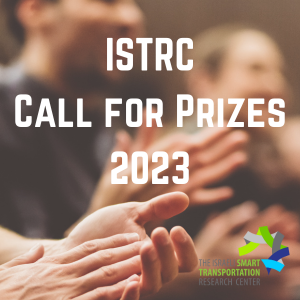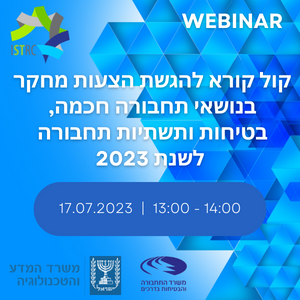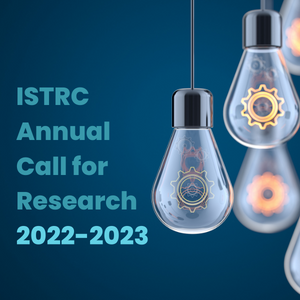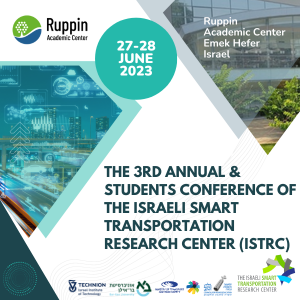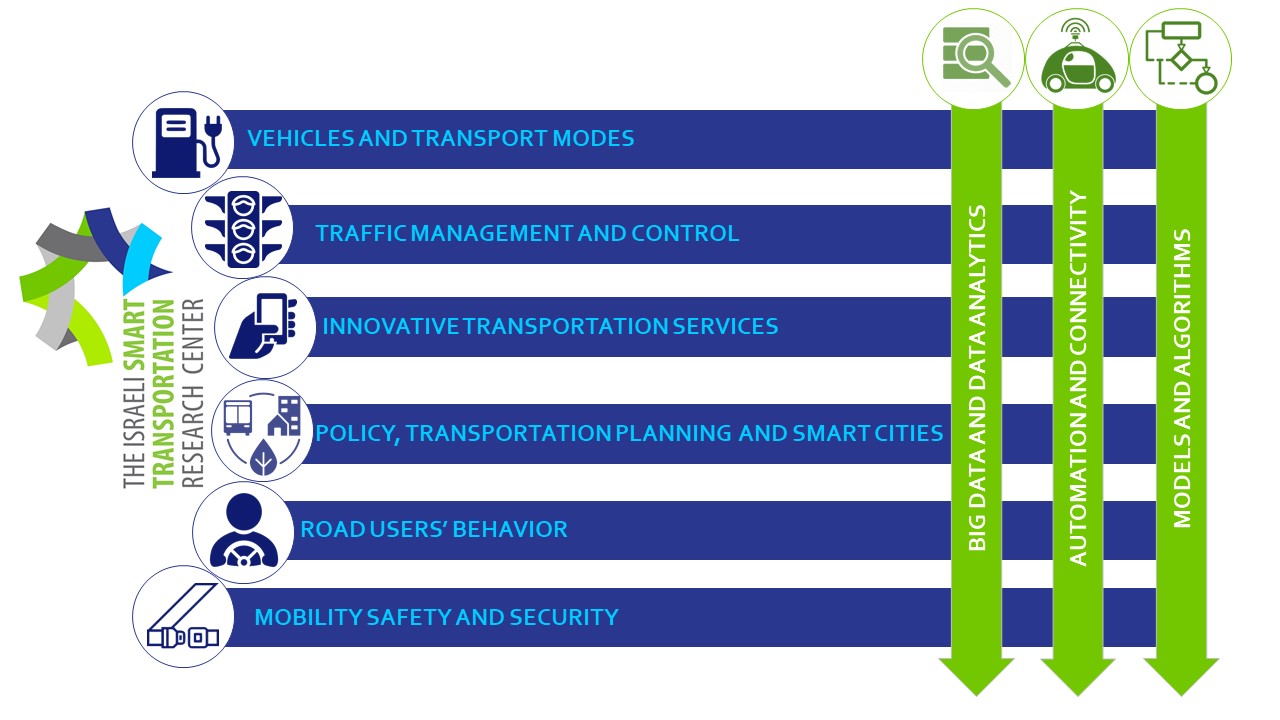
The Israeli Smart Transportation Research Center (ISTRC) at the Technion in collaboration with Bar-Ilan University was established jointly by the Smart Mobility Initiative in Israel's Prime Minister’s Office and the Council For Higher Education, with the aim of encouraging research and development, entrepreneurship and industry in the field of smart mobility in Israel.
The establishment of the center represents a significant and important step in the implementation of the Israel’s National Plan for Smart Mobility, and another step towards making Israel a leading center of knowledge in this area.
Smart transportation research is interdisciplinary in nature, and hence requires collaboration between researchers from different fields and academic departments and institutions, together with a constant dialogue among industry, academy and decision makers. Nine Professional Committees, composed of researchers from the academy, the industry and the public sector, were established to cover relevant research topics: six committees operating in key areas of transportation and three committees focusing on methodological directions and enabling technologies. The committees' main objective is to develop, assess and analyse research gaps in the fields of their expertise, and to recommend pressing topics for the center’s Calls for Research. There is a strong collaboration between the committees. We drew the idea of the committees’ structure from the world leading Transportation Research Board (TRB).
VISION
| TO UNITE THE ACADEMIC AND R&D COMMUNITY AND VARIOUS STAKEHOLDERS TO INITIATE AND LEVERAGE INTERDISCIPLINARY AND INTERSECTORIAL RESEARCH ACTIVITIES THAT WOULD CONTRIBUTE TO SMART, EFFICIENT AND GREEN TRANSPORTATION AND POSITION ISRAEL AS A WORLD LEADER IN THE FIELD. |
SMART TRANSPORTATION ZERO EXTERNALITIES VISION
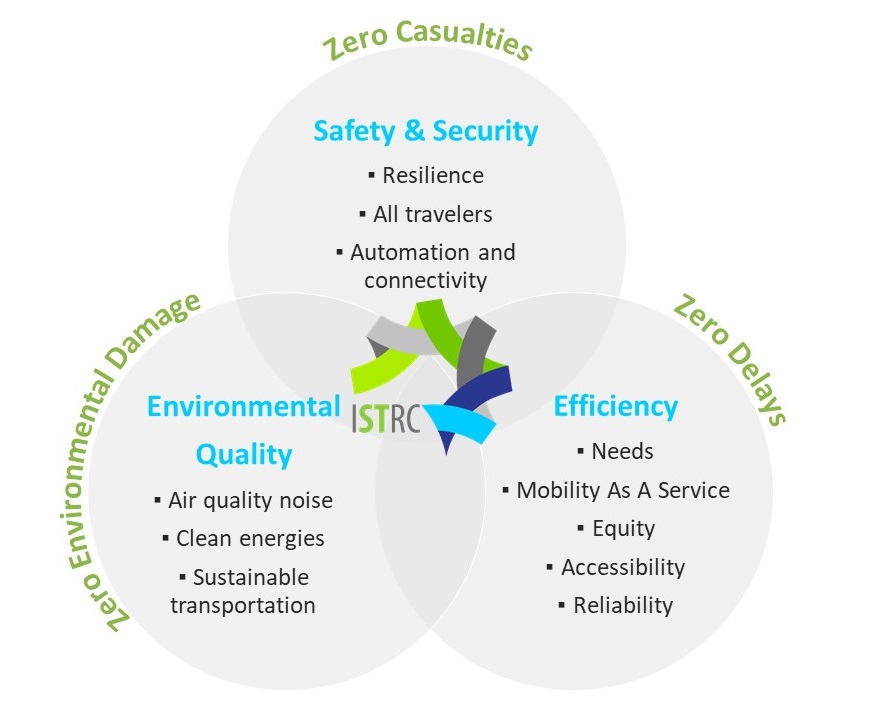
Zero Casualties
Generating a safe, resilient and forgiving system that will optimally respond to safety and security failures, while considering all road users (mixed traffic, vehicles, non-motorized and new modes, both automatic and manual), with zero fatalities and serious injuries, and a development and implication of cutting edge technologies and other means in the field of automation and connectivity.
Zero Delays
Generating an efficient and equitable transportation system to ensure optimal level of service that is tailored to individuals’ mobility needs, while maintaining the needs of all. A system based on Transit Oriented Development (TOD), environmental friendly land use planning, and Mobility as a Service, that optimally reflects the inherent opportunities of motorized and non-motorized transport modes, public and shared transportation, and in various levels of automation.
Zero Environmental Damage
Preventing all types of emissions, noise, and other environmental externalities by developing and adopting clean and renewable energies for energy conservation and the promotion of sustainable transport modes and behavior.
MISSION
To be the center of choice for the Smart Transportation research and development community, and to work toward achieving four main goals:
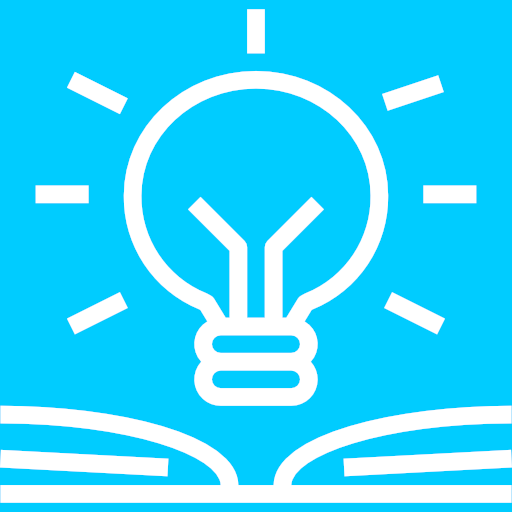
GENERATE CUTTING EDGE COLLABORATIVE RESEARCH, INSIGHTS AND KNOWLEDGE
- Initiate and leverage joint research
- Interdisciplinary
- Inter-sectoral
- Multi-institutional
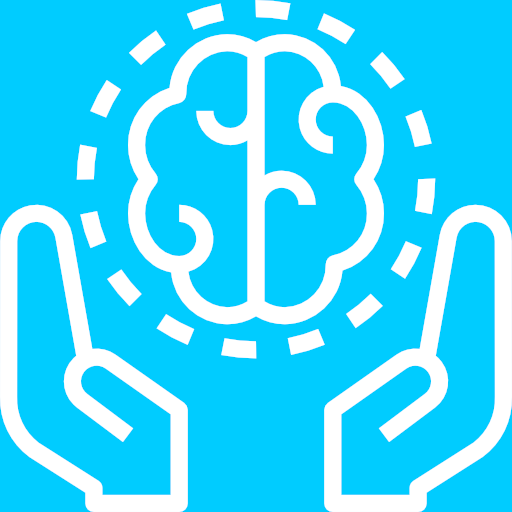
DEVELOP AND EMPOWER HUMAN CAPITAL
- Scholarships for students and researchers
- Dedicated learning program

ESTABLISH AN R&D COMMUNITY TO BOOST EFFECTIVE COLLABORATION AND INSPIRE INNOVATION
- Professional committees (interdisciplinary, all academics)
- Local and international conferences

KNOWLEDGE HUB FOR RESEARCH & DEVELOPMENT
- Portal & support center
- Access to Open Data
